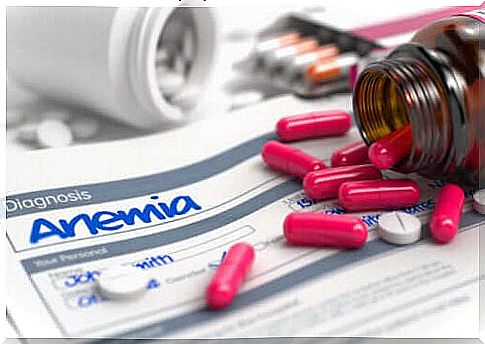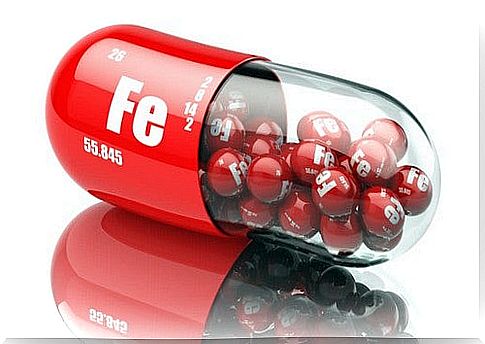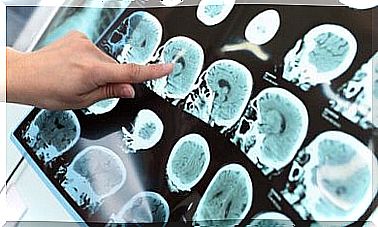Iron Supplements: In Which Cases To Take Them?

Iron supplements are ideal for people who cannot meet their daily requirement of this mineral with diet alone. But who can hire them and who really needs them? Can they be prescribed and taken in any case?
Iron is essential for the formation of hemoglobin and red blood cells. Precisely for this reason, in the absence of the necessary quantity, some disorders can occur.
What are the consequences of iron deficiency?
When the levels of iron in the blood are lowered, the transport of oxygen to the tissues is more complex. Following this, the person experiences symptoms such as weakness, fatigue, headache, paleness, and cold hands and feet. All these manifestations can indicate anemia.
Due to this deficiency, the body carries out its functions with difficulty, furthermore motor activity is reduced. In addition to this, changes in the immune system could arise, therefore a greater risk of getting sick.
At the same time, low levels of this mineral will affect the lack of transport of vitamin A to the liver.

When to take iron supplements?
Fortunately, iron supplements help prevent the complications described or treat them once they arise. They can also be taken to supplement the diet for better benefits.
According to several studies, some groups need a greater need for minerals. This may be due to poor nutrition or growth stages generally associated with anemia. In the following lines we analyze these cases.
Pregnant women
During pregnancy, women need more iron for themselves and their unborn baby. If iron deficiency during pregnancy is significant, it increases the risk of anemia and of the baby being born underweight, premature or having a weak red blood cell base.
In this regard, the World Health Organization states that over 40% of pregnant women in the world suffer from anemia. In half of the cases this is due to iron deficiency.
Pregnant women and breastfeeding women should contact the specialist to find out which supplement is best suited to their case. Drops or pills can be prescribed. In more severe cases, injections may be necessary, especially if the pregnant woman is subject to vomiting episodes that are difficult to contain.
Babies and children up to 2 years
Iron deficiency can cause delays in cognitive development, social isolation and a reduced attention span on the part of the child. Babies born in the ninth month of pregnancy can have iron deficiency if they are not ensured a supply of foods containing this mineral.
Women of reproductive age and adolescents
Some women of reproductive age tend to suffer from iron deficiency. In general, this is due to heavy menstrual bleeding, which is why there is a greater loss of iron.
Teenagers, on the other hand, need a greater need for this mineral because they are in the development phase. The metrorrhagia of young women during the first menstrual cycles is also a cause of anemia.
Regular blood donors
Those who donate blood periodically are more prone to iron deficiencies. This situation can be prevented by respecting sufficient time before donating again.
Anemia due to a chronic disease
According to several studies, some chronic diseases – such as rheumatoid arthritis, inflammatory bowel disease, gastrointestinal diseases and some neoplasms – can interfere with the body’s ability to absorb and use iron. As a result, people with these conditions tend to suffer from iron deficiency.
What to keep in mind when consuming iron supplements?
Iron supplements can be taken in the form of pills, chewable tablets and in liquid form. The most common formulation is ferrous sulfate, but there are others, such as gluconate and fumarate.
They are more easily absorbed by the body when taken on an empty stomach. Nonetheless, they can cause stomach colic, nausea or diarrhea. To prevent these side effects, it may be helpful to accompany administration with small portions of food.
In addition, calcium and antacids interfere with their absorption, so it is recommended to wait at least two hours before ingesting milk, cheese, raw vegetables, caffeine and other medications. Foods that contain vitamin C, such as citrus fruits and kiwifruit, can instead be useful for promoting greater iron absorption.
In case of deficiencies, it is good to have blood tests on a regular basis to determine the exact values for red blood cells and hemoglobin. If necessary, it is also possible to measure the iron concentrations in the blood and that of the carrier proteins.

Is taking iron supplements advisable?
Although these supplements increase the body’s iron stores, it is not always advisable to take them. In this regard, it must be considered that the consumption of any substance not prescribed by the specialist is always contraindicated.
Finally, we must stress that it is important to include foods rich in this nutrient in the diet. Supplements do not work wonders nor are they the only treatment for anemia. Similarly, low red blood cell values are not necessarily due to an iron deficiency.









